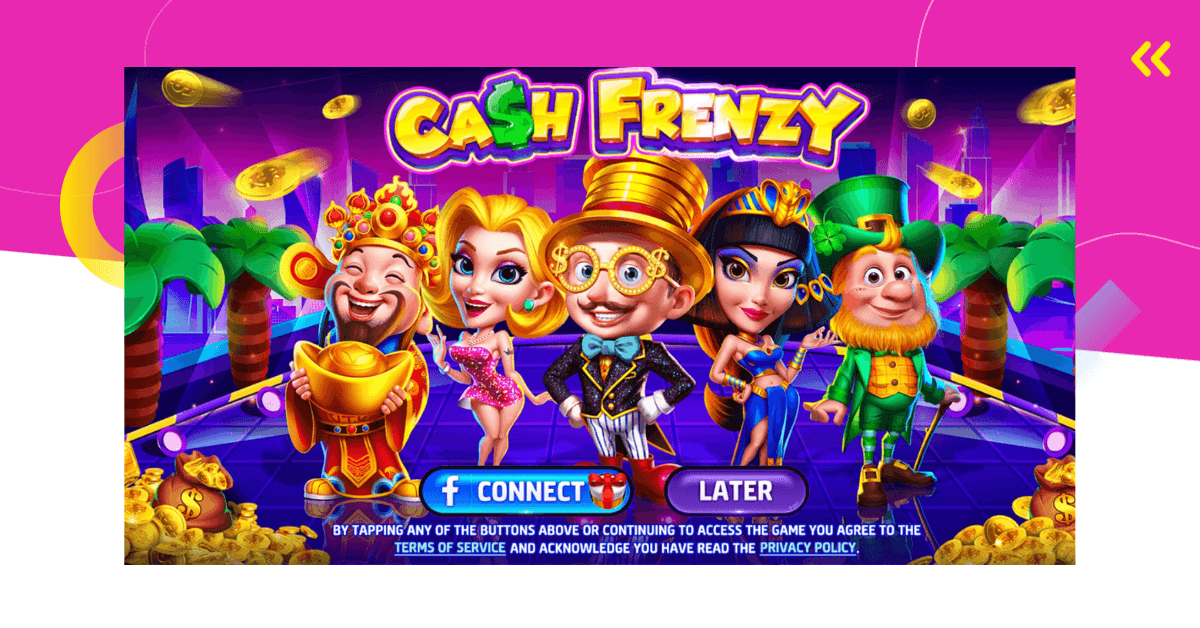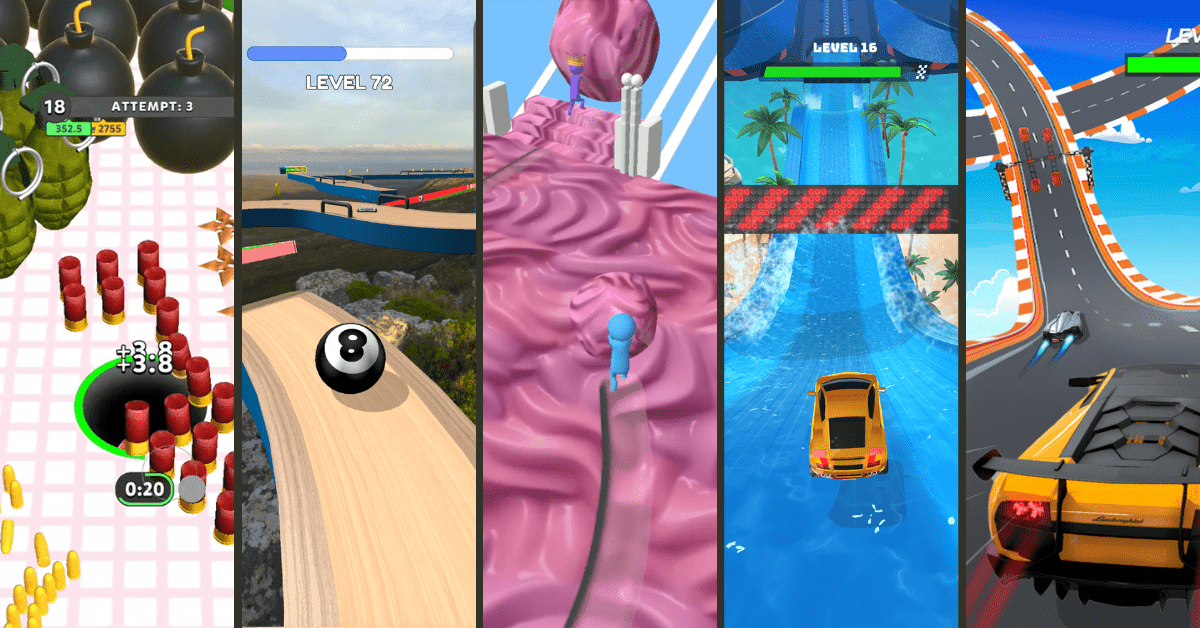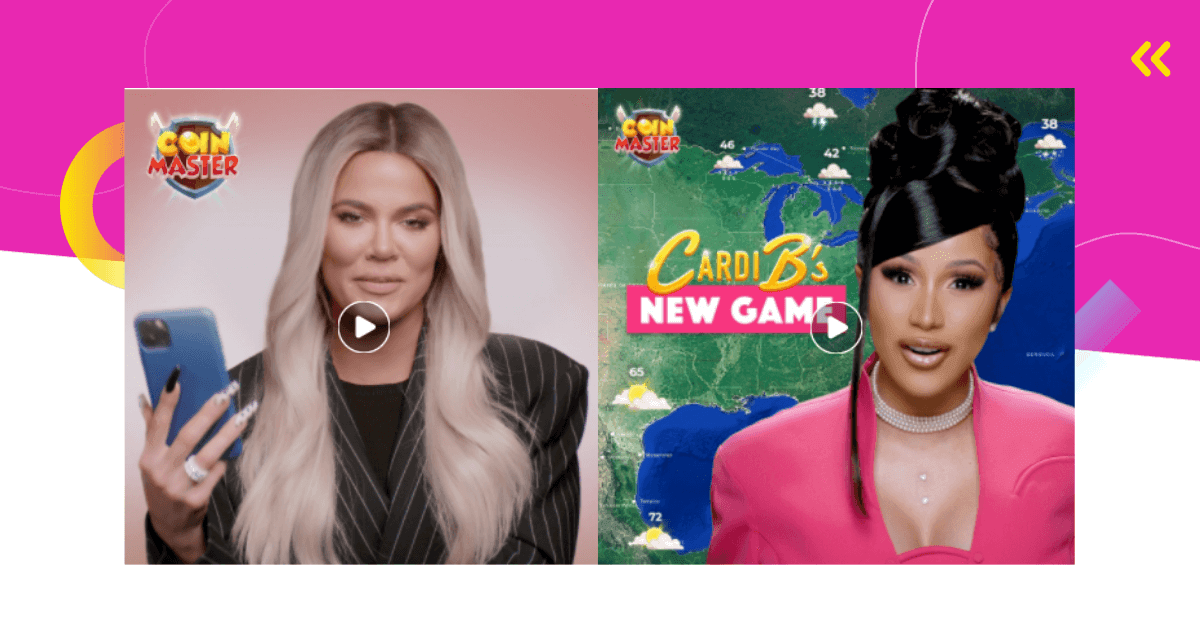Collection systems in mobile games are currently one of the biggest mobile game market trends.
If you get them right, they can make your game more diverse, enjoyable, and most importantly, more lucrative.
In this article, you will find out what collection systems are, how different games use them, and what are the best ways to utilize them.
Let’s get started.

On Collection Systems in Mobile Games
There is no talking about collection systems in mobile games without talking about meta layers.
The thing is, collection systems usually appear as additional in-game content that supports core gameplay. Or in other words – as meta layers.
In industry slang, these meta layers are called collectible meta or collection meta.
Whatever you call them, their meaning is the same.
A collectible meta is any type of system in a game that includes collecting. In this system, players can collect various things. For example:
- Cards/Stickers
- Characters/heroes
- Skins
- Resources
- In-game achievements
In most cases, collectible systems come in the form of collectible albums. Over the past few years, this feature has been getting a lot of traction.
From 2017 until today, the number of 100 top-grossing games that use collectible albums grew from 21% to 72% (GameRefinery, iOS).
Benefits of Using Collection Systems in Mobile Games
What is it about collection systems that make them so widespread and popular?
There are many answers to this question, so let me list out a few benefits of collection systems in mobile games.
Differentiate Your Game
The mobile game market is huge and it’s constantly growing. That’s a great thing because it creates many opportunities for developers. However, the downside is that there are so many games out there that it’s getting increasingly more difficult to stand out and get players’ attention.
Adding a meta-layer like a collection system gives developers a chance to differentiate their game in this busy market.
Let’s take Project Makeover as an example.
If we look only at its core, this is a classic match-3 game not that different from other games in the genre. So why would anybody play Project Makeover instead of classic match-3 games like Candy Crush?
Besides its match-3 core, Project Makeover has many meta-layers, including a collection system and others like customization and decoration. This is what makes this game unique and differentiates it from others.

Attracting Different Types of Players
When players want to install a game, something about it has to attract them.
However, their motivations differ. For example, some players enjoy solving puzzles, while others enjoy expressing themselves in games.
With just core gameplay, your game covers only a couple of groups of players. But if you add a collection meta to the game, you can get yourself whole new player groups.
This meta layer leverages players who like exploring and collecting new things. GameRefinery calls this group of players “Treasure Hunters”.
If you have a collectible system, you may attract these players to your game. And if you do everything right – they might continue playing your game.
Adding Depth to the Game
Repetitive gameplay can be amusing and even addicting.
Until, at some point, it isn’t anymore.
This is why your game should have elements that give it depth and diversity. Collection systems in mobile games can do exactly this. They bring new goals for players to achieve and keep things challenging.
If we look at psychological effects, players also get a lot of satisfaction from collecting items and completing goals. This is what drives players to engage more and stick with a game for longer time periods.
Thus, all of this can increase metrics like stickiness and user retention.
Balancing Game Difficulty
Some players find one aspect of the game difficult, while others may struggle with a different one.
This can make you wonder, “Who should I help?”
This is where collection systems can come in handy. They allow you to navigate game difficulty without making huge changes to the game. This is especially true if the things they are collecting are affecting core gameplay (e.g., power-ups, characters).
Therefore, if players excel in the meta layer, this can help them with other parts of the game.

Helping Players Express Themselves
As I mentioned before, in collection systems, players can collect cosmetic items (e.g., skins, emotes).
These things don’t make the game any easier.
However, they do give players something else – a chance to express their personalities. The ability to customize in-game characters means a lot to some players. GameRefinery calls this group of players “Expressionists”.
Hence, this might make them play the game for longer, and maybe even spend money on it.
More Monetization Opportunities
Most games don’t directly monetize on collection systems.
However, some do. They create offers around them, and some even go and create special “meta” currencies.
Generally, you shouldn’t expect that collection systems will become your game’s main revenue source. What you can expect from them is they will boost your retention and engagement rates, and consequently, your revenues.
Top Examples of Collection Systems in Mobile Games
Collection systems can be found in different games and genres. This is because they can fit almost any type of core gameplay.
Let’s take a look at some examples.

Cash Frenzy
Just like a lot of casino games, Cash Frenzy embraced the collection system trend. More precisely, a collectible album feature.
The slots subgenre is especially dominated by collectible albums. This is because all slots games are very similar to each other. In an attempt to be a bit different and better than others, some of them added this meta layer.
In Cash Frenzy, players unlock it at level 5, and it’s called the “Stamp collection”. Just like everything else in this game, this feature is luck-based.
This makes it exciting and addictive.
It also makes it monetization material.
Cash Frenzy developers know this, so they’ve made it pretty straightforward. The time players can spend in the meta layer per day is limited. In it, they need to “rub a genie”. However, they only get one free rub per day. If they want to spend more time in it, they can do so by making purchases.
But not just any kind of purchases.
The game offers players emeralds, a special meta-layer currency. It can be found in the game’s store.
With this strategy, the game can clearly separate “meta-payers” from others. This gives it a chance to target these players with customized offers.

PUBG Mobile
Not only games in the casual category utilize collection systems.
In PUBG’s Battle Royale mode, players can collect a whole array of cosmetic items. This includes character outfits, weapon skins, vehicle skins, emotes, icons, and even song tracks.
When new cosmetics appear, they mostly come as premium event rewards. Since events only last for a while, the possibility to win them is time-limited.
As it usually goes with cosmetic items, players want them so they can brag about them.
PUBG developers sure know this.
Hence, they created a special room just for bragging – a “Showroom”. When they are not battling, players can come there, put on their favorite cosmetics and just show off.
The game also introduced a collectible album feature.
It is called the “Season Gallery” and in it, players can show all the cosmetics they’ve collected in the ongoing and previous events. They can also see how they can get the items they don’t have yet.
Finally, if they complete a certain collection, they get rewarded for it.

Evermerge
As Evermerge players are merging items and progressing, they are also advancing in the game’s meta layer.
More precisely – in a character collection meta.
This collection meta is connected to core gameplay, but also to another meta layer – the game’s narrative.
As players progress, they unlock famous cartoon/fairytale characters. However, they come in a modern and twisted edition. For example, Cinderella, a notorious shoe designer.
Since the narrative is whimsical and entertaining, this can make players interested in seeing more characters.
The game even directly ties character collection to monetization. It has offers that help players unlock the next character sooner.
Character collection appears as an icon on the home screen. It is a separate zone where players can see other characters that they will be able to unlock. The next character in line comes with an exclamation point. Players can check it out and see how close they are to unlocking it.
All others come with question marks, which makes them mysterious and desirable at the same time.

AFK Arena
This game uses a smart blend of gacha, social features, and a collection system.
Here’s what I mean by that.
In AFK Arena, gacha is used to summon heroes. Once players receive random heroes, they should upgrade them. One way of doing this is by engaging with the game’s collection system.
This feature is placed in a separate location – in the game’s library. Here, players can collect specific sets of heroes and form them into Unions.
In a Union, players can combine their own and even their friends’ heroes. However, it’s not enough to just collect required heroes – they also need to be ascended (upgraded).
In order to do this, players need to have hero duplicates. This is great because this system doesn’t make duplicates a worthless disappointment, but a valuable win.
Only when players achieve all of this, they will get a reward for completing a union – permanent stat boosts.
All of this encourages players to keep playing and pulling the gacha. It also motivates them to diversify their heroes list and upgrade the ones they normally wouldn’t.
And since friends are involved, it also gives them a reason to get social.
Collection Systems: Best Practices
As you can see, different games use collection systems differently.
There is no one perfect way to do it, but there are some best practices you can follow.
Here they come.
Make Collections Valuable
What’s the point in having collectibles if no one wants them?
For this reason, whatever you make “collectible” in your game, it has to be valuable and desirable.
Give players a strong reason to collect something in your game. For example, the collectibles can provide them with gameplay value, cosmetic value, or be extremely rare.
Whatever it is, make sure it aligns with your players’ overall goals and interests in the game.
Perhaps the best way to really see the value in something is to compare it to something else. You can use this strategy and show players how valuable certain collectibles are in comparison to other in-game items.
Speaking of value, you should watch out for one more thing – the value of old collectibles.
Sometimes, players need to put a lot of effort into earning something for their collection. Because of this, they can feel attached to it. Therefore, don’t make old collectibles redundant too soon. Extend their value for a while, and let players feel proud of themselves.

Don’t Make Dupes Too Disappointing
If your game has a system in which players can collect duplicates (e.g., gachas and loot boxes), be careful with them.
In general, nobody is super excited about getting a duplicate.
For this reason, you should consider giving them some value. For example, you can create a system in which players merge duplicate collectibles together to get better ones. Another option is to make them replaceable for small amounts of currency.
Reward Players for Their Efforts
Players love rewarding experiences.
With a collection system, you can have one on top of your game’s main reward system. If players are engaging with your game outside of the core, reward them for it.
Whatever collectibles you have, be clear about what they can get out of it.
You can make this reward system separate or connected to your core gameplay. It is a good idea to somehow connect the two, so players feel more motivated to engage with the meta layer.
All in all, the players’ curiosity and thirst for your game shouldn’t go unrewarded.

Create a Collection-Specific Zone
Place the collection meta in a special place separated from the core gameplay. For example, a collectible album.
In this place, players should be able to see what they’ve collected by now and what they can collect in the future.
Here, it should also be possible to find instructions on what they can do to collect the remaining stuff.
Motivate Players to Participate
Besides “just” rewarding players for engaging with the meta layers, there are a few more things you can do to make them want to collect stuff.
One of them is to allow them to compare themselves to other players. For example, give players the option to peek into other players’ collections.
People want to do better than others. Therefore they might just continue trying until that happens.
This is basic psychology.
Another way to motivate players is by linking the collectible system to in-game events.
In-game events are mainly seasonal and time-limited. If you connect the two, your collectibles will also feel time-limited, which makes them more exclusive.
On the other hand, players who like participating in events will have more reasons to engage with the game’s meta layer.
Any way you look at it, this should be a win-win situation for you.
Collection Systems in Mobile Games: Wrap up
Hopefully, this article answered all the questions you had about collectible systems in mobile games.
If you have any questions about them, let me know in the comments below!







Comments